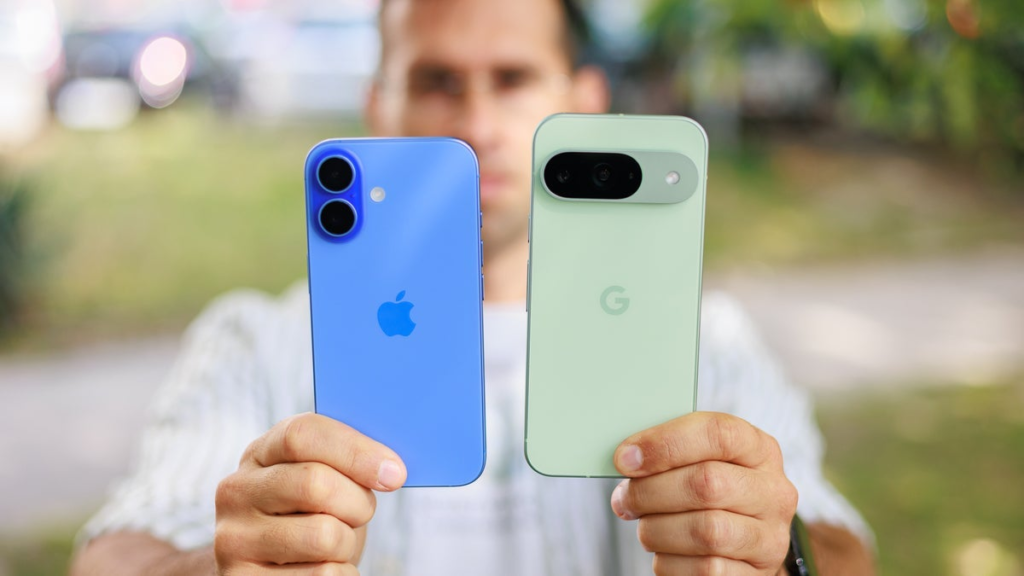Indonesia bans sales of Google Pixel phones in its domestic market. This ban, which follows the recent restriction on Apple’s iPhone 16, is part of Indonesia’s strict enforcement of local content regulations aimed at bolstering its economy by promoting domestic manufacturing.
The regulation requires smartphone companies to incorporate at least 40% locally manufactured components if they want to sell their products in the country. The block reflects Indonesia’s growing desire to become a hub for tech manufacturing in Southeast Asia, though some experts argue that the measure may impact consumer choice and investor sentiment.
Indonesia’s Local Content Requirements and Their Impact on Google and Apple
The Indonesian government’s decision to ban the sales of Google Pixel phones, days after restricting Apple’s iPhone 16, stems from a rule aimed at encouraging local production of smartphone components.
The government stipulates that 40% of the parts used in smartphones sold in Indonesia must be sourced domestically, aiming to boost the local economy, encourage job creation, and enhance the country’s technological capabilities. Febri Hendri Antoni Arief, spokesperson for Indonesia’s industry ministry, noted the importance of fairness in this rule, emphasizing that it was set to provide an equitable environment for all investors.
Read: Russia Fines Google $2.5 Decillion, More Than the World’s GDP
While Google’s Pixel phones are not officially distributed in Indonesia, the ban prevents future market entry unless the tech giant complies with local content rules.
Read : Google’s Strategic Shift: The Layoff of the Python Team and Its Implications
Apple’s iPhone 16 faces similar restrictions. This regulatory approach aligns with efforts seen in other countries that aim to strengthen domestic industries by implementing rules that protect and promote local manufacturing, though it poses challenges for tech giants accustomed to globalized supply chains.
Consumer and Economic Repercussions of the Ban
The decision to ban popular phone models like the Pixel and iPhone may have notable implications for Indonesian consumers and the broader market. Currently, OPPO and Samsung dominate Indonesia’s smartphone market, leaving Google and Apple with comparatively low market shares.
By enforcing these content rules, Indonesia’s government effectively limits consumer choices, potentially pushing users to seek alternatives abroad or purchase phones through unofficial channels.
Interestingly, consumers can still legally import Google Pixel phones or iPhones from abroad, provided they declare and pay the required taxes. Febri indicated that Indonesia may consider deactivating phones that are illicitly sold within the country, which would further curtail unauthorized distribution.

For consumers, however, this raises a dilemma: the added expense of import taxes makes purchasing these models less affordable and accessible. The regulatory move could also influence Indonesia’s tech landscape, pushing consumers toward companies like OPPO and Samsung that already comply with local rules and further consolidate their market dominance.
Economists like Bhima Yudhistira, director of the Center of Economic and Law Studies think tank, view the rule as a form of “pseudo” protectionism. He warns that it may impact Indonesia’s appeal to foreign investors.
Foreign companies might be deterred by the additional requirements and potential limitations on profit if they are compelled to source from local suppliers. This sentiment reflects concerns that while the move may aim to promote local industry, it could also inadvertently stifle technological diversity and hamper investor interest in Indonesia.
Indonesia’s Strategic Importance in the Tech Market
Indonesia represents a significant market in Southeast Asia with its large, tech-savvy population, making it attractive to global tech companies and investors.
This demographic strength is one reason why companies like Google and Apple might eventually choose to align with local rules to capitalize on the opportunities presented by the country’s growing digital ecosystem.

By enforcing its local content regulations, Indonesia may hope to achieve the dual purpose of attracting investments that stimulate domestic production while also ensuring that the benefits of tech sales stay within its economy.
The decision to block global tech giants underscores a broader trend in Southeast Asia, where countries are exploring ways to strengthen local industries in response to globalization.
By enforcing these measures, Indonesia not only seeks to foster local manufacturing but also to empower regional partnerships with tech giants who may look to comply through collaboration with local suppliers.
This strategy, however, will require balancing regulatory objectives with consumer needs and investor confidence to maintain Indonesia’s role as a critical player in the region’s tech landscape.

